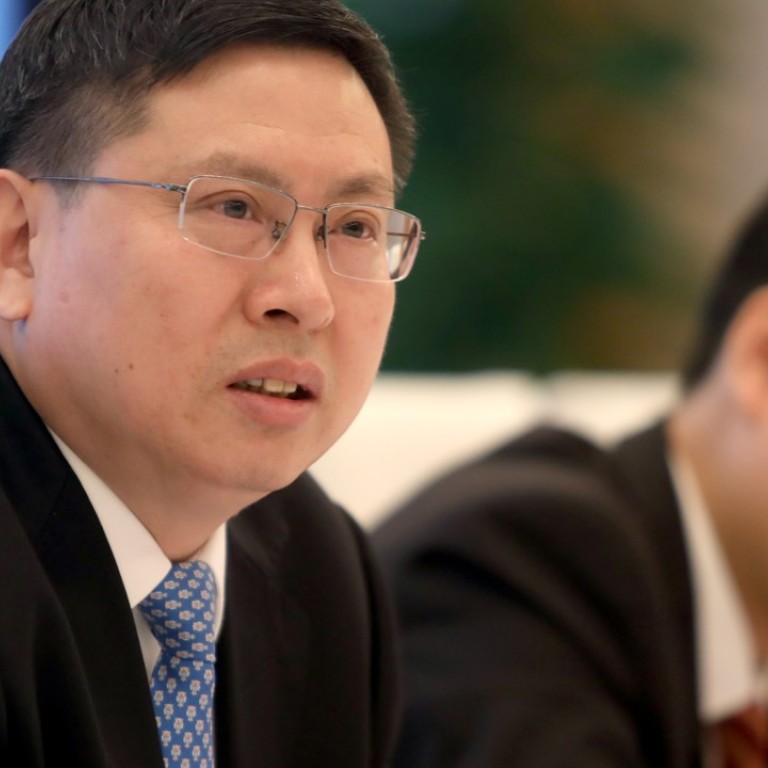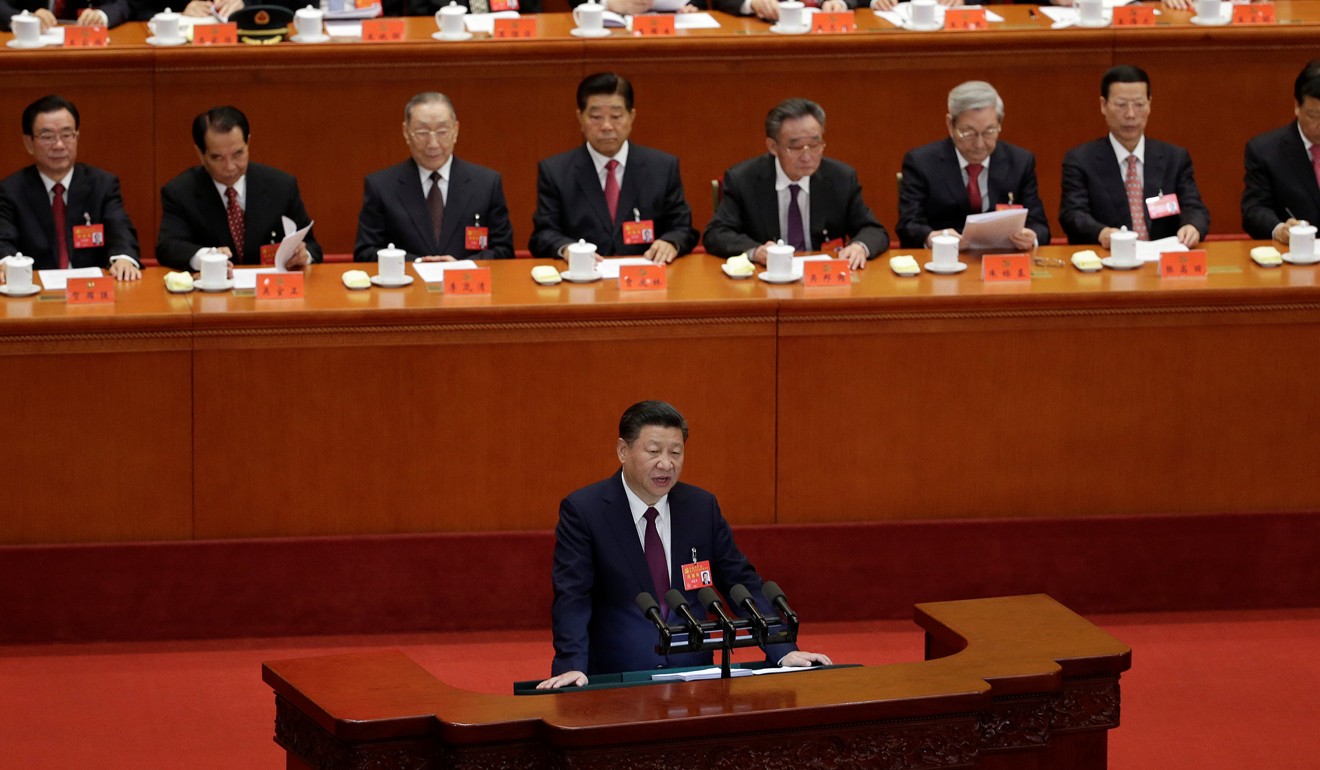
Beijing official says Xi Jinping has given ‘one country, two systems’ a status boost
Deputy commissioner at Chinese foreign ministry’s office in the city urges Hong Kong to seize opportunities offered by president’s vision
And Song Ruan, deputy commissioner of Beijing’s foreign ministry office in Hong Kong, said the city must seize the historic opportunities offered by Xi’s vision.
The president also listed the implementation of one country, two systems as one of 14 points in his “Thought on Socialism with Chinese Characteristics for a New Era”, the country’s newest defining political dogma.
One country, two systems is the principle under which Hong Kong has been promised a high degree of autonomy since it was handed from British to Chinese rule in 1997.
Speaking at a briefing with foreign journalists in Hong Kong on Tuesday, Song said that, after Xi’s report to the congress, Beijing’s commitment to the key principle had become one of the basic policies of developing socialism.
“This shows that one country,,two systems,has a new political position in the overall work of the party and the state since Hong Kong was reincorporated into the national governance system,” Song said.
He said achieving the kind of blend that Xi spoke of “holds the key to a sound relationship between the central government and Hong Kong.”

But Professor Lau Siu-kai, vice-chairman of the Chinese Association of Hong Kong and Macau Studies, a semi-official think tank, said the new status mainly referred to Xi’s vision for Hong Kong “compatriots to share the historic responsibility of national rejuvenation”.
“One country, two systems has always been a national strategy. It was not tailor-made for Hong Kong,” he said.
At the briefing, Song also said Hong Kong “should view and make plans for the future development of the country and Hong Kong in a broader perspective.”
“We hope different sectors of Hong Kong society will cherish and uphold the current sound momentum that has not come easily,” he said.
Xi Jinping ally takes up top job in Shanghai
Song told journalists he hoped they would “have objective and comprehensive coverage of the outcomes of the congress ... so that together we can present the international community with a more accurate picture of the Communist Party and China itself”.

